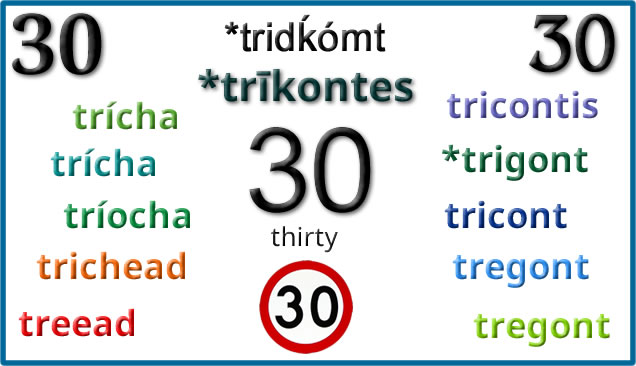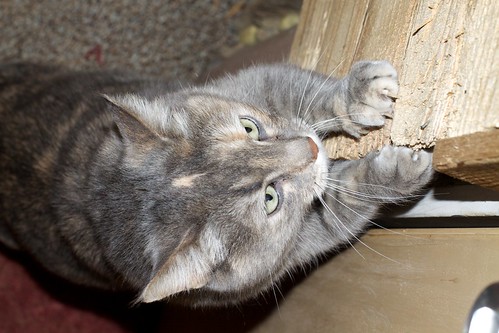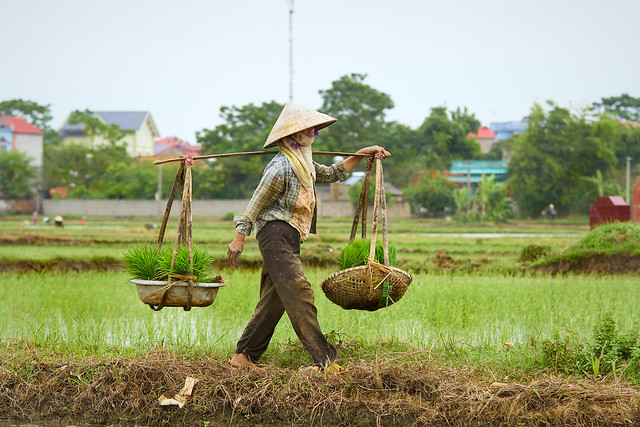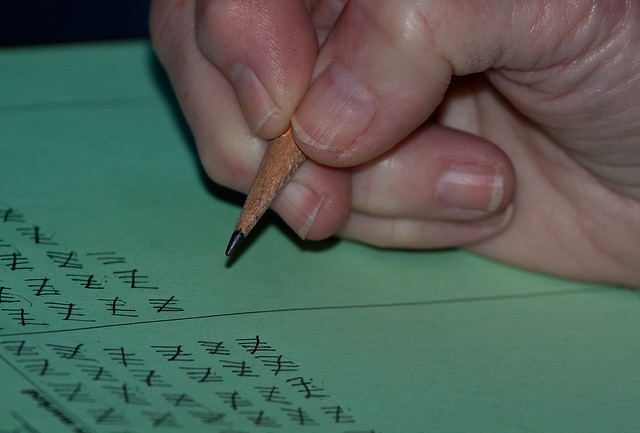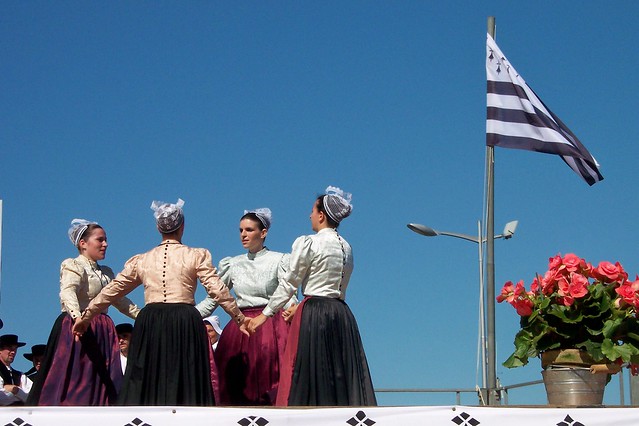Words for companion, friend, ceilidh and related things in Celtic languages.

Ceilidh at Sabhal Mòr Ostaig in the Isle of Skye / Cèilidh aig Sabhal Mòr Ostaig san Eilean Sgitheanach
Words marked with a * are reconstructions.
| Proto-Celtic | *kēlyos = companion, servant |
|---|---|
| Primitive Irish | ᚉᚓᚂᚔ (celi) = follower, devotee (genitive) |
| Old Irish (Goídelc) | céile [ˈkʲeːlʲe] = client, companion, husband, liege, servant, spouse, subject, vassal céilide [ˈkʲeːlʲiðʲe] = visit, visiting coicéile = companion, comrade, friend, friendship |
| Middle Irish (Gaoidhealg) | céile, ceile, céli = servant, bondsman, vassal, subject, fellow, companion, husband céileachas = adultery céilide = visit, act of visiting coicéile, cocéle, coceli = vassal, bondsman, companion, fellow, friend coicéilsine, cocéilsine, cocélsine = fellowship, clientship |
| Irish (Gaeilge) | céile [ˈceːlʲə] = companion, spouse céileachas = companionship, cohabitation, copulation céilí = friend call, visit, social evening, Irish dancing session céilíoch = person fond of social visits, sociable person céilíocht = sociableness, companionableness céiliúil = companionable coigéile = mate, companion coigéilsine = fellowship, companionship |
| Scottish Gaelic (Gàidhlig) | cèile [kʲeːlə] = fellow, partner, significant other, spouse, counterpart cèile-còmhraige = opponent, antagonist cèile-pòsta = married partner (husband or wife) cèileach [kʲeːləx] = entertaining cèileachadh [kʲeːləxəɣ] = participating/sharing in, twinning, partnering (of a city) cèiliche [kʲeːlɪçə] = visitor cèilidh [kʲeːlɪ] = ceilidh, visit, (act of) visiting cèilidheach [kʲeːlɪjəx] = companionable, fond of company, sociable |
| Manx (Gaelg) | keilley = match dy cheilley = joined, together e cheilley = fellow ry-cheilley = en masse, together, with each other kaylee = ceilidh |
| Proto-Brythonic | *kuɨlð = servant, companion |
| Middle Welsh (Kymraec) | cilit, cilid, kilid, kilyd = servant, companion |
| Welsh (Cymraeg) | cilydd [ˈkɪlɨ̞ð/ˈkiːlɪð] = fellow, companion, neighbour, enemy, other cilyddol = reciprocal, mutual at ei gilydd = together gyda’i gilydd = together ei gilydd = each other o bryd i’w gilydd = from time to time |
| Middle Cornish (Cernewec) | cele = companion, fellow, one of two |
| Cornish (Kernewek) | kila = companion |
| Old Breton | kiled = friend |
| Middle Breton (Brezonec) | kile = the other (one), friend |
| Breton (Brezhoneg) | kile = associate, stooge, colleague, sidekick |
Etymology: possibly the Proto-Celtic word originally meant ‘wayfarer’, from Proto-Indo-European *ḱey- (to settle, to be lying down) [source].
The English word ceilidh [ˈkeɪli] (an informal social gathering where traditional Irish or Scottish folk music is played, with dancing and storytelling; a ceilidh dance; to dance a ceilidh) was borrowed from Scottish Gaelic and/or from Irish [source]. Someone who attends a ceilidh is apparently a ceilidher [source].
The Welsh equivalent of a ceilidh is a twmpath, which also meanings hillock, knoll, mound, pile, gathering or assembly. It’s also a known as a twmpath dawns (folk-dance, barn dance, public dance) or noson lawen (“merry/joyful evening”). In Cornish a ceilidh is a troyll, which also means spiral or swirl, and in Breton they are known as fest-noz (“night party / ”) [source].
| Proto-Celtic | *karants = friend *karantodyos = friendly |
|---|---|
| Gaulish | Caranto-, Carantōna = personal names *Carantodios = personal name |
| Old Irish (Goídelc) | cara [ˈkarɘ] = friend, relation, relative, kinsman cairdes = friendship, alliance, pact cairdine = friendship, alliance caratad = friendship, alliance caraid = to love |
| Middle Irish (Gaoidhealg) | cara, carae [ˈkarə] = friend cairdide = friendly caratrad = friendship, alliance cairdech, cairdeac, cairdeach = friendly, having many friends cairdes, cardes, cairdius = friendship, alliance, covenant, pact, relationship, kinship cairdemail [ˈkɑːɾˠdʲuːlʲ] = friendly caraid, carad = to love caratrad, caratrid = friendship, alliane |
| Irish (Gaeilge) | cara [ˈkɑɾˠə / ˈkaɾˠə] = friend, relative anamchara = spiritual adviser, confidant, kindred spirit, soulmate cairdeach [ˈkɑːrdʲəx] = generous, friendly cairdeas = friendship cairdine = friendship, pact, truce cairdiúil [ˈkɑːɾˠdʲuːlʲ] = friendly cairdiúlacht = friendliness |
| Scottish Gaelic (Gàidhlig) | caraid [karɪdʲ] = friend, relation, kinsman, Quaker càirde [kaːr̪dʲə] = friendship, entente càirdeas [kaːr̪dʲəs] = kinship, friendship, friendliness càirdeach [kaːr̪dʲəx] = kin, related, friendly |
| Manx (Gaelg) | carrey = friend, well-wisher caardys, caarjys = friendship, kin(ship), pedigree, blood relationship, allied to caarjoil = amiable, friendly, friendliness caarjysagh = friendly caarjysaght = friendliness |
| Proto-Brythonic | *kar [kar] = friend, relative |
| Middle Welsh (Kymraec) | kar, kereint, kerenhit, car, karant = kinsman, relative, cousin, friend, companion, dear one keredic, keradwy, karatwy = loveable, amiable, dear, beloved caru, karu, kary = to love, woo, court carannawc = dear, beloved kerenhit, kerennyd, carennydd = kindred, kinship, relationship, descent, affinity, friendship, love |
| Welsh (Cymraeg) | câr [kaːr] = kinsman, relative, cousin, friend, companion, dear one carad = loved caradwy, ceradwy = loveable, amiable, dear, beloved caru = to love, woo, court carennydd = kindred, kinship, relationship, descent, affinity, friendship, love |
| Old Cornish | car = friend, ally, a dear neighbour, kinsman, cousin |
| Middle Cornish (Cernewec) | car, câr, = friend, ally, a dear neighbour, kinsman, cousin, father caradow = beloved, loving, dear care = to love carense, cerense = love, friendship |
| Cornish (Kernewek) | kar = parent, relation, relative kara = to care for, like, love kardewder = loving-kindness karadow = beloved, fond, loveable, loving karder = loveliness, splender karer = boyfriend, lover kares = girlfriend, relation, relative, mistress (lover) |
| Old Breton (Brethonoc) | car = agreeable, dear |
| Middle Breton (Brezonec) | car = friend, relative carantez = love caret = to love, cherish, desire |
| Breton (Brezhoneg) | kar [ˈkɑːr] = relative, friend karadegezh = kindness karadek [kaˈrɑːdek] = kind, nice, amiable karantegezh = affection, love karantek [kaˈrãntek] = affectionate, pleasant karantez [kaˈrãn.tɛs] = love karedig [kaˈreːdik] = lover, loving karout [ ˈkɑː.rut] = to love, cherish, desire karet [ˈkɑː.ret] = favourite, beloved |
Etymology: from Proto-Celtic *karāti (to love, desire), from *karos (dear, beloved), from Proto-Indo-European *kh₂-ró-s, from *keh₂- (to desire) & *-rós (adjectival suffix) [source]. Words from the same PIE roots include charity, cheer, and cherish in English, caro (dear, precious, expensive) in Italian, cher (dear(ly), expensive) in French, caro (dear, expensive) in Spanish, kär (in love, enamored, dear, beloved) in Swedish, and kær (dear, adorable, cute) in Danish [source].
| Irish (Gaeilge) | comhar [kõːɾˠ] = combined work, mutual assistance, co-operation, partnership |
|---|---|
| Scottish Gaelic (Gàidhlig) | coimheart [kɔ̃jəRʃd] = companion |
| Manx (Gaelg) | commeeys = communion, connection, league, mess, participation, partnership, relations (between people) |
| Proto-Brythonic | *kumpar = peer, fellow, spouse, partner, companion |
| Middle Welsh (Kymraec) | kymar = peer, fellow, spouse, partner, companion |
| Welsh (Cymraeg) | cymar [ˈkəmar] = equal, peer, companion, mate, fellow, spouse, consort cymar bywyd = life partner cymhares = female partner, wife, mate, companion, equal cymharus = well matched, well paired, corresponding, matching, appropriate, fitting cymheiriaeth = a coupling together, partnership |
| Middle Cornish (Cernewec) | cespar = spouse, married person, mate |
| Cornish (Kernewek) | kespar / kespares = partner kesplegadow = compatible |
Etymology (Brythonic words): from Latin compār (fellow, partner, equal [person], spouse), from con- (used to indicate being or bringing together), from cum (with), and pār (even, equal, like; companion, comrade, mate, spouse) [source]. The Goidelic words may come from different roots.
Words from the same roots include compare, pair, par (equal value) and peer in English, paar (pair, couple, some) in Dutch, and péire (pair) in Irish [source].
| Proto-Brythonic | *ko-u̯ekt- = companion, comrade, friend (?) *ko-u̯ektii̯ŏ- = company, band or gathering of companions, troop, host, retinue |
|---|---|
| Old Welsh (Kembraec) | coueidid = company, band or gathering of companions, troop, host, retinue |
| Middle Welsh (Kymraec) | kyueith, kyweith = companion, comrade, friend kiueithad = society, company, partnership kyweithaed = gathering, company kyweythas, kyweithas, keuey[th]as = soceity, company, fellowship, companionship kweithasgar = sociable, gentle, kind(ly), gracious kyweithit, ky()eithyd, kyweithyd = company, band or gathering of companions, troop, host, retinue |
| Welsh (Cymraeg) | cywaith = companion, comrade, friend; association, harmony cyweithad = society, company, partnership cyweithäed = gathering, company cyweithas = soceity, company, fellowship, companionship, alliance, commerce; sociable, gentle, kindly cyweithasu = to associate, civilze, treat with courtesy cyweithasgar = sociable, gentle, kind(ly), gracious cyweith(i)asol = social, kind, gentle courteous cyweithydd = company, band or gathering of companions, troop, host, retinue |
| Middle Cornish (Cernewec) | coweth, cowyth = companion, fellow, mate, comrade cowethas = company, society cowethe = company, sociery cowethes = female companion, help-mate cowetheyans = communion, fellowship cowethys = acquainted |
| Cornish (Kernewek) | koweth / kowethes = companion, comrade, friend, mate, peer kowethas = association, society kowethasek = social kowethegeth = friendship kowethek = friendly kowethus = gregarious kowethyades, kowethyas = colleague kowethyadow = socialable kowethyans = company, organisation |
Etymology: from Proto-Brythonic *ko- (together, equal, similar) u̯ekt- (to move, go) [source].
Sources: Wiktionary, Etymological Dictionary Of Proto Celtic, In Dúil Bélrai English – Old Irish glossary, eDIL – Electronic Dictionary of the Irish Language, Teanglann.ie, Am Faclair Beag, An etymological dictionary of the Gaelic language, Fockleyreen: Manx – English Dictionary, Online Manx Dictionary, Gaelg Corpus, Geiriadur Prifysgol Cymru, Lexicon cornu-britannicum : a dictionary of the ancient Celtic language of Cornwall, Gerlyver Kernewek, Devri : Le dictionaire diachronique du breton, Geriafurch, TermOfis



